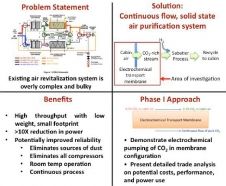“We should celebrate when optimism and hard work triumph over cynicism, lethargy, and fatalism.”– Sadiq Khan.
Get the latest international news and world events from around the world.

Stunning but Deadly, China’s Bioluminescent Algal Blooms Are Getting Bigger
Satellite imagery taken over the past two decades shows that the toxic bioluminescent microorganisms responsible for China’s sparkling blue seas are becoming increasingly abundant.
New research published in Geophysical Research Letters is the first to use satellite data to track algal blooms consisting of red Noctiluca scintillans (RNS), a single-celled microorganism that produces the beautiful bioluminescent blue glow known as “blue tears.” These tiny sea creatures prefer coastal waters, especially along the coast of the East China Sea where they appear in the numbers required to produce the spectacular blue glow.

SpaceX Returns To Business As Usual With Launch Of Canadian Satellites
SpaceX has successfully launched a rocket carrying three Canadian satellites into orbit, the company’s seventh launch of the year.
At 7.17 A.M. Pacific time today, SpaceX’s Falcon 9 rocket lifted off from the Vandenberg Air Force Base in California. About eight minutes after launch, the first stage of the booster touched down at the company’s Landing Zone 4 near the launch site – only the second ever landing here.
This was also the second time this booster had launched, having gone to space previously on the historic first uncrewed demonstration mission of the Crew Dragon spacecraft in March this year. That mission launched from Cape Canaveral in Florida, whereas this was SpaceX’s 15th ever launch from Vandenberg of their 79 total launches.

Former Blue Origin and SNC executive joins Vector
Updated 5 p.m. Eastern with corrected quote provided by the company in final paragraph.
WASHINGTON — Small launch vehicle Vector has hired a new chief financial officer who previously held similar positions at Blue Origin and Sierra Nevada Corporation.
Vector announced June 12 Stephanie Koster as its new CFO, leading the company’s finance and business operations. Koster joined the company in March, according to her LinkedIn profile.

SpaceX Falcon 9 bids temporary goodbye to West Coast in launch & landing photos
SpaceX has completed its last California Falcon 9 launch of 2019 and the company’s official pictures of the mission are unexpectedly spectacular considering the near-zero visibility incurred by coastal fog.
Lifting off on June 12th, Falcon 9 successfully delivered the Canadian Space Agency’s Radarsat Constellation Mission (RCM) – likely weighing ~5000 kg (11,000 lb) – to a 600 km (370 mi) sun-synchronous orbit (SSO). Made up of three separate Earth observation satellites, RCM has a combined value greater than $1 billion and has thus become the single most expensive payload – perhaps by as much as a factor of two – SpaceX has ever launched. Although disappointing, RCM made for a spectacular temporary finale to SpaceX’s West Coast launch activity, likely the company’s last Vandenberg Air Force Base (VAFB) mission for at least 6–9 months.


Breaking Down α-Synuclein Aggregates
Today, we want to point out a new publication that recently appeared in the Science Translational Medicine journal, as its authors have discovered a new mechanism by which the brain protects itself from the harmful α-synuclein protein aggregates associated with Parkinson’s and that may open the door to new therapies against these conditions.
To understand where these harmful protein aggregates come from, we should take a look at how proteins are created and what goes wrong during the process of proteostasis.

New Laser Zaps and Destroys Cancer Cells in Real Time
A team of scientists from the University of Arkansas Medical Sciences have successfully tested a laser that can track down cancer cells and kill them — all from outside the skin.
While being completely non-invasive, “this technology has the potential to significantly inhibit metastasis progression,” Vladimir Zharov, author of the paper that was published today in Science Translational Medicine, tells IEEE Spectrum. The idea is to kill of cancer cells before they are able to metastasize, or spread, through the body — the primary cause of cancer-related deaths.

Science fiction and folk medicine inspire novel wound dressings
A relatively inexpensive egg-based formula and a Star Trek-like plasma patch can accelerate healing of serious and chronic wounds, which affect millions of Europeans every year.
According to trade association MedTech Europe, around 4 million people in the EU develop non-healing wounds each year. These are most commonly bedsores or diabetic ulcers, and the problem is likely to become worse as lower birth rates and higher life expectancy means the European population is getting older.
Dr. Carsten Mahrenholz from German company COLDPLASMATECH says that physicians tend to just re-dress chronic wounds as they are very hard to heal. But he warns that the current issues we are experiencing with multidrug-resistant bacteria means that we are on the brink of a return to the Middle Ages in terms of our susceptibility to infection.